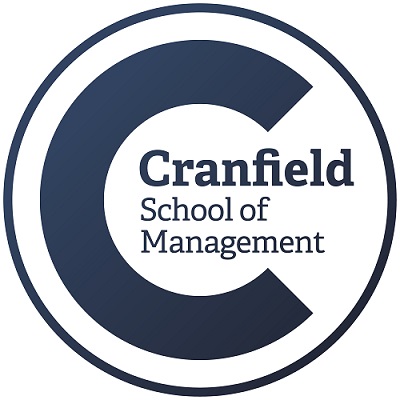- Leadership
2020 Leadership Lessons for 2021
Mark Threlfall and colleagues offer twelve thoughts for Christmas to help us prepare for a better New Year
Winston Churchill is often quoted as saying “Never let a good crisis go to waste.” If we are to embrace the ever-changing emergence with agility and dexterity what can we learn from the rapid shifts we have all made to a purely digital world? I believe we must reflect and squeeze the learning from this once in a lifetime opportunity that Covid has presented. How can we embed the speed and flexibility we have all had to adopt when business returns to whatever normal looks like in the future? We all recognise this future will be a blended world, with the split flipping from 70% face-to-face / 30% digital provision to the complete opposite.
Personally, I have used this time to reflect, not just upon the strategic and operational lessons that I can draw from this crisis, but on the team of people surrounding me, and the culture of the organization in which we exist. This crisis has highlighted individuals’ abilities of which I was not aware. It brought into sharp focus our collective capacity to imagine and innovate. It dragged one of Cranfield’s values—our sense of Community—into the spotlight and illuminated how effectively we support each other when faced with a challenge.
Asking six of my Cranfield School of Management colleagues two questions, I received the answers recorded below—twelve thoughts for Christmas:
………………………………………………………………………………………...........
Question 1: Based on your experience of this turbulent past year, what is the one key competency, intelligence, or skillset you would urge leaders to foster and take with them into what is sure to be an equally challenging 2021?
Question 2: Considering two key industry focuses of the past few years in exec-ed, what area of ‘impact’ and/or guiding ‘purpose’ would you most like to look back at this time next year, and feel you made a positive difference in?
………………………………………………………………………………………...........
Lester Coupland, Executive Development Director, Head of Praxis Organizational Resilience and Change Leadership Group:

Q1. I would urge leaders to nurture empathy and inclusion. We know that our teams are happier and perform better when they feel understood, accepted and ‘part of something’, especially at times of uncertainty. Our leadership behaviours, acts, activities and practices that can shape this positive culture.
Q2. As we look around us for leadership role models in business and political life, I would like to frame leadership as being about what lies beyond being smart, effective, successful, and admired; beyond the limits of our personal identity; more about what is there for us as human beings beyond ourselves; and something bigger than any individual—a higher purpose.
Dr Wendy Shepherd, Executive Development Director, Learning Design and Innovation:

Q1. Leaders are regularly encouraged to tune in to the changing needs of clients. It is essential that leaders also tune in to the changing needs of colleagues, many of whom will continue to struggle, not just with new ways of working, but also with the emotional and physical requirements of supporting their families and staying healthy.
Q2. Through continued innovation in technology enabled development, it would be great to see a reduction in our industry’s carbon footprint. Also, as many of our clients are facing financial challenges, through improved methods of impact management, I would like to see demonstrable organizational level returns from development investment.
Richard Wilding, Full Professor & Chair of Supply Chain Strategy:

Q1. Supply Chain Management is about the management of relationships with all stakeholders to create value, the turbulence of the last 12 months has highlighted that leaders need to manage relationships more effectively between all stakeholders in order to increase resilience and maintain competitive advantage. Within the supply chain these include suppliers and customers. To manage relationships, just like managing anything else, you need processes, resource, information systems and people. Sadly, in many organization there is a naïve belief that relationships just happen.
Q2. My passion is to inspire, inform and innovate supply chain development and performance. Through challenge, best practice and academic support for public and private sector organizations and driven individual professionals who are intent on improvement. This has been my ethos over the years which directly impacts the logistics, procurement and supply chain profession.
Dr Imran Zawwar, Regional Director Middle East and Lecturer in Strategic Management:

Q1. The current year has no doubt been challenging but at Cranfield, we continued to maintain a positive outlook from the very beginning. The challenges strengthened us as a team and the reason for this success is a unique way of looking at problems, we term it as a collaborative discovery process. The collaborative discovery is the heart of progressive innovative organizations and, in our experience, we have found it extremely impactful especially under conditions of uncertainty.
Q2. The two main focus areas for Cranfield in exec-ed in my remit include organizational impact and internationalisation. I believe we have made positive strides in both areas. We explored a unique way of delivering organizational impact through our LIVE online programs where engagement has been no inferior (if not better) than face-to-face delivery. Similarly, we landed new partnerships and have continued to reach out to new markets.
Camilla Jonsson, Portfolio Director, Cranfield Executive Development:

Q1. Slow down to speed up/spend time sensemaking.
Q2. Create collaborative eco-systems and go beyond organizational profit to provide wider benefits for society, business, and people.
Graham Bell, Executive Development Director, Client Management

Q1. Given the unpredictable nature of 2020, a core competence required for any leader in 2021 will be flexibility. This will be imperative in terms of the strategic direction and daily operation but also crucial for supporting team members who have spent the last eight months rapidly developing new working practices.
Q2. The use of technology to support education has been critical this year to ensure continuity of learning for many people. When I look back at the end of 2021 I would like to feel that we will have built on the great work that has taken place during the pandemic and have continued to innovate and improve our practice.
………………………………………………………………………………………...........
So as we approach the end of a year which will form an unforgettable moment in global history, I would encourage everyone to take a step away from the workplace, breathe, and look back at the year through those different lenses—strategic, operational, cultural and human.
What surprised you? What have you learned? What will you celebrate? What will you hold onto for 2021? What will you leave behind in 2020? Positive memories help us stay resilient in the face of challenges. There is no question that 2021 will bring fresh challenges. So don’t let this “good crisis go to waste”: identify your empowering stories about the 2020 experience that people tell each other to keep themselves buoyant in 2021.
Mark Threlfall, Director of Cranfield Executive Development
ARTICLES YOU MIGHT LIKE
RESEARCH
Why organizational resilience requires adaptive leadership particularly in times of crisis
DEVELOPING LEADERS QUARTERLY MAGAZINE AND WEEKLY BRIEFING EMAILS


































